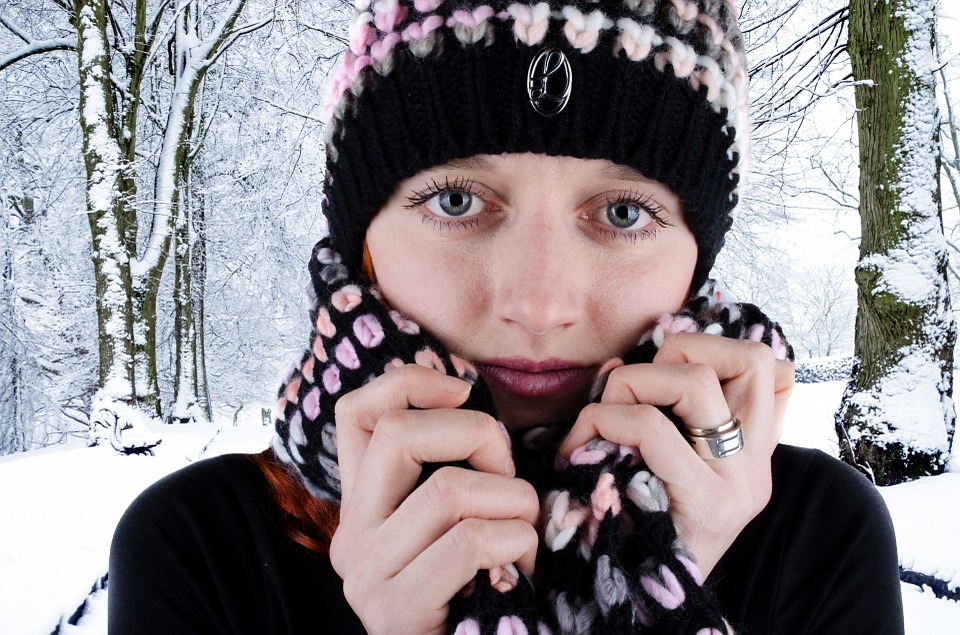How Does The Winter Weather Affect Your Skin? As early as 2002, scientists established that over half of us are affected by seasonal acne. The winter weather is hard on our skin and often leads to dry, chapped skin and winter acne breakouts. But why does the winter weather cause so many breakouts, and how can we prevent them? This article will help shed some light on what happens to your skin in the winter, and how to be kind to your skin in the colder months.
How Does The Winter Weather Affect Your Skin
Why Is Skin Drier And More Acne-Prone In Winter?
“Acne breakouts are common during winter months,” Pharmacist Stuart Gale from Oxford Online Pharmacy tells shopwithmemama.com. The weather and changes to our body’s oil production make for an increased chance of acne and dry skin.
Over the winter it is harder for the body to get the vitamins it needs from the sun. The lower the Vitamin D levels in your blood, the higher the chance of eczema and dry skin. Studies show that as the body’s supply of Vitamin D increases, there is an increased percentage of moisture in the skin. The colder weather also means that there is lower moisture in the air, drawing water away from the body and drying out skin even further.
Dry skin can increase the proportion of dry skin cells on the face, which can block pores and lead to an acne breakout. This can be made even worse as in the winter your body produces more sebum, natural oil that can further clog your pores and lead to acne. Our body naturally produces more sebum in drier and colder temperatures.
What Are The Main Causes Of Winter Breakout?
As well as the natural causes of winter breakout, there are a few man-made mistakes that lead to winter breakout and dry skin.
Overuse Of Central Heating
We’re not saying that you should never use your home heating, but overuse of central heating has the same effects on the skin as cold weather. The less moisture and the lower the humidity, the more moisture is drawn out of the skin. Invest in warm blankets and use central heating more sparingly to see healthier skin.
Longer, Hotter, Showers
Over the winter we’re naturally more inclined to take hotter and longer showers to stay warm and refresh. However, regardless of the moisture, the hot temperature and steam can dry out your skin in the same way as central heating can. Minimize the time you spend in the shower to see fresher skin. Overwashing can also lead to drier and more acne-prone skin.
Holiday Food & Drink
Over the winter months, we’re more likely to drink hot beverages like coffee and celebrate with an alcoholic tipple. But certain drinks can actually dehydrate the body, drying out the skin and leading to winter breakout. Over the holidays we’re also prone to eating more sugary foods, which might lead to a higher chance of acne.
Seasonal Stress
Stress may be linked to an increased chance of acne, and there is ongoing research into the impact of stress on your skin. The holiday season is an increased source of stress for many, with societal pressures and close proximity to the family being stressful for some. As you approach the end of the work year there can also be the need to wrap up projects or deadlines before the winter break. We also may eat more ‘unhealthy’ foods or drink more to relieve stress, leading to increased chances of acne.
How Can I Protect My Skin In Winter?
Although our skin is up against it from the weather and the impact of man-made inventions, there are several things we can do to protect and be kind to our skin (and ourselves) during the winter months.
Drink Lots Of Water
Water is an essential part of keeping our skin hydrated, and the recommended intake of water is around 8 cups a day. If you find it hard to drink water on its own, why not try infusing it with fruit or low-sugar fruit juices. Drink hot water or decaffeinated herbal tea if you’re struggling to stay warm over the winter months. When drinking coffee or alcohol, try to up your water intake by drinking a glass in between each hot or alcoholic beverage you have.
Avoid Heavy Moisturisers or Cleansers
It can be tempting to invest in heavier moisturizers or cleansers over the winter, but heavier skin creams can actually lead to drier and more acne-prone skin. If you are on a medicated moisturizer for acne, try to cut back on this over the winter months. Aim for gentler products that don’t strip the natural oils from your skin. A moisturizer with SPF will also help protect your skin from the winter sun.
Wear Sunscreen
Although our skin receives less Vitamin D over the winter months, we can still damage and dry out our skin from overexposure to sunlight and UV rays. Wear products that contain SPF 30 as a minimum every day to avoid the chances of dried-out and sun-damaged skin.
Invest In Layers
Exposing our skin to the winter elements can lead it to become chapped and dried out. Invest in layers like a thick coat, scarf, gloves, and long and short-sleeved upper wear to protect your skin from the cold. If you find yourself sweating, layers will allow you to cool down and avoid sweat being trapped under your clothes, leading to body acne breakout.
The winter is naturally a difficult time for our skin, with a combination of the weather and our body’s natural oil production. However, as humans, we also make the situation worse with increased use of central heating, longer showers, and even increased sugar uptake and holiday stress. Fortunately, by investing in lighter skin creams and applying sunscreen every day we can mitigate the impact on our skin. Enjoy our tips for dewy fresh skin all year round and stay warm this winter.

